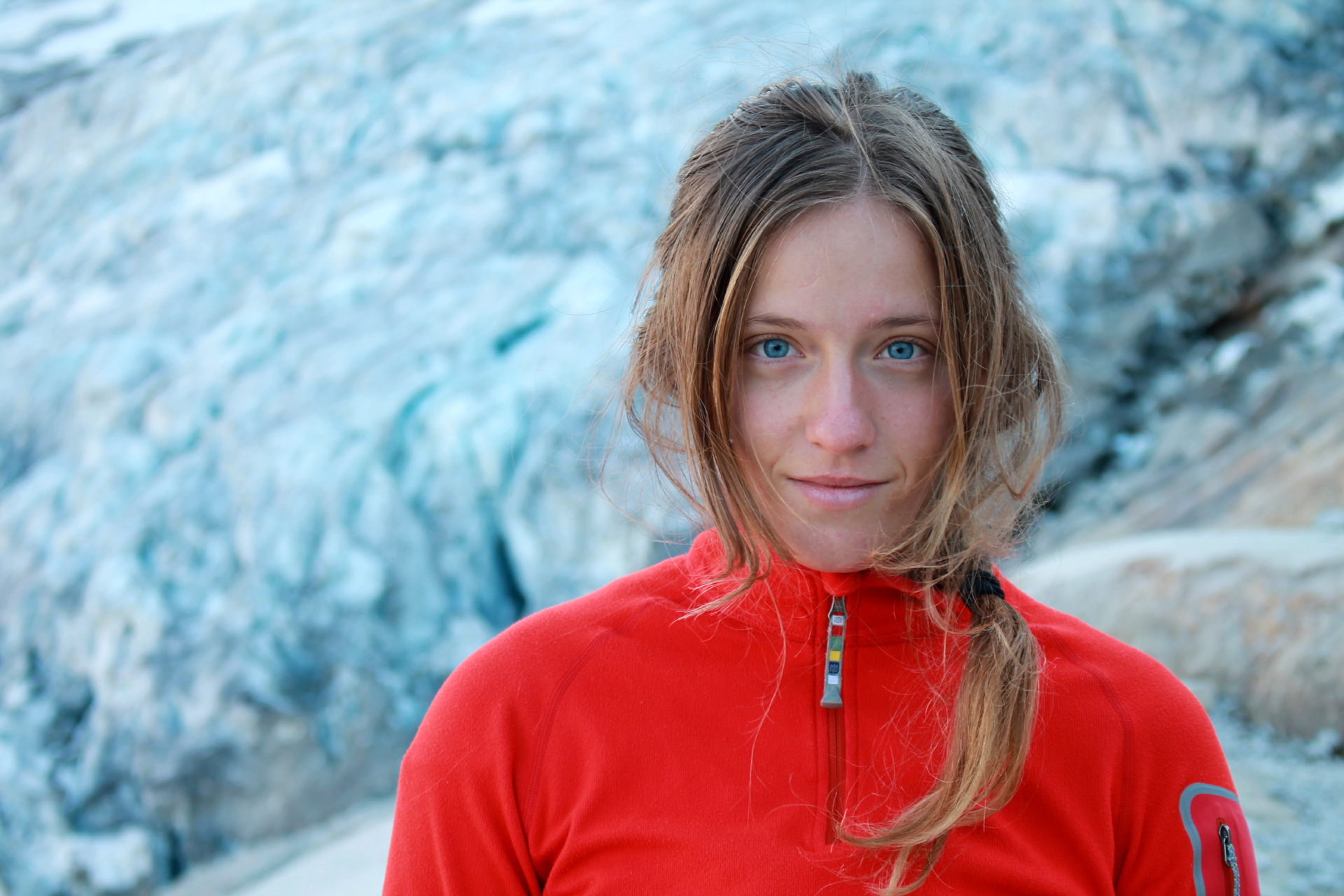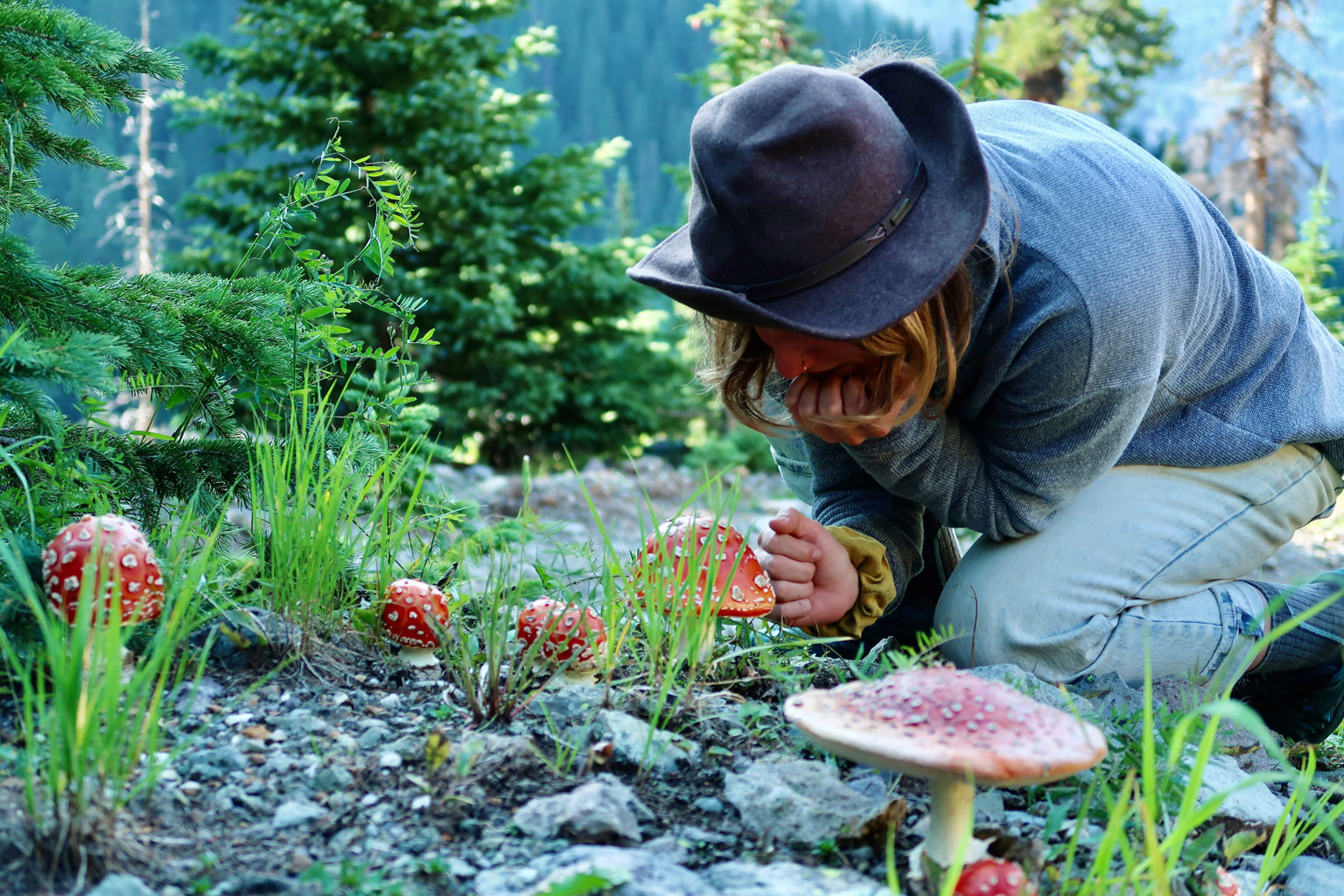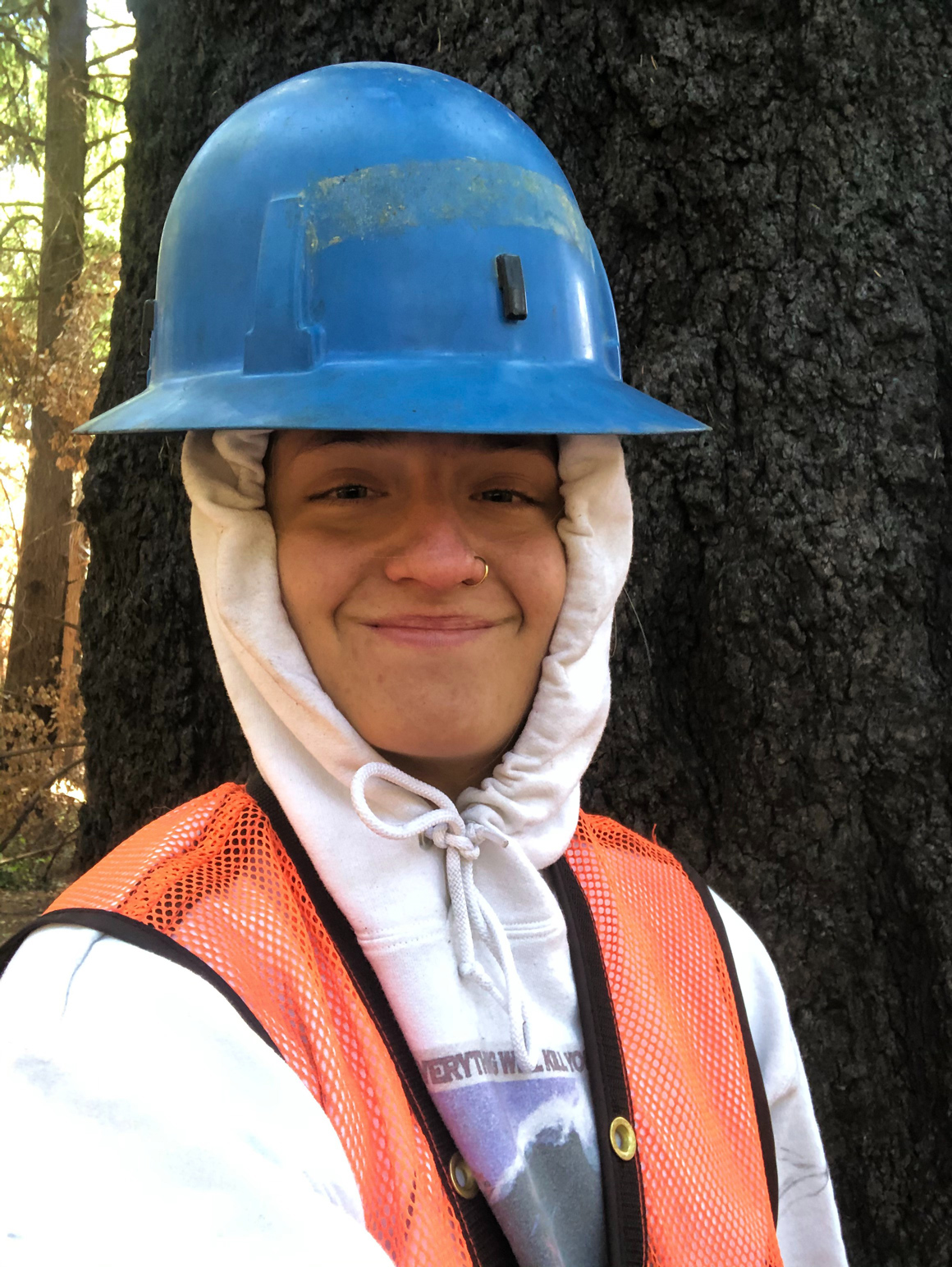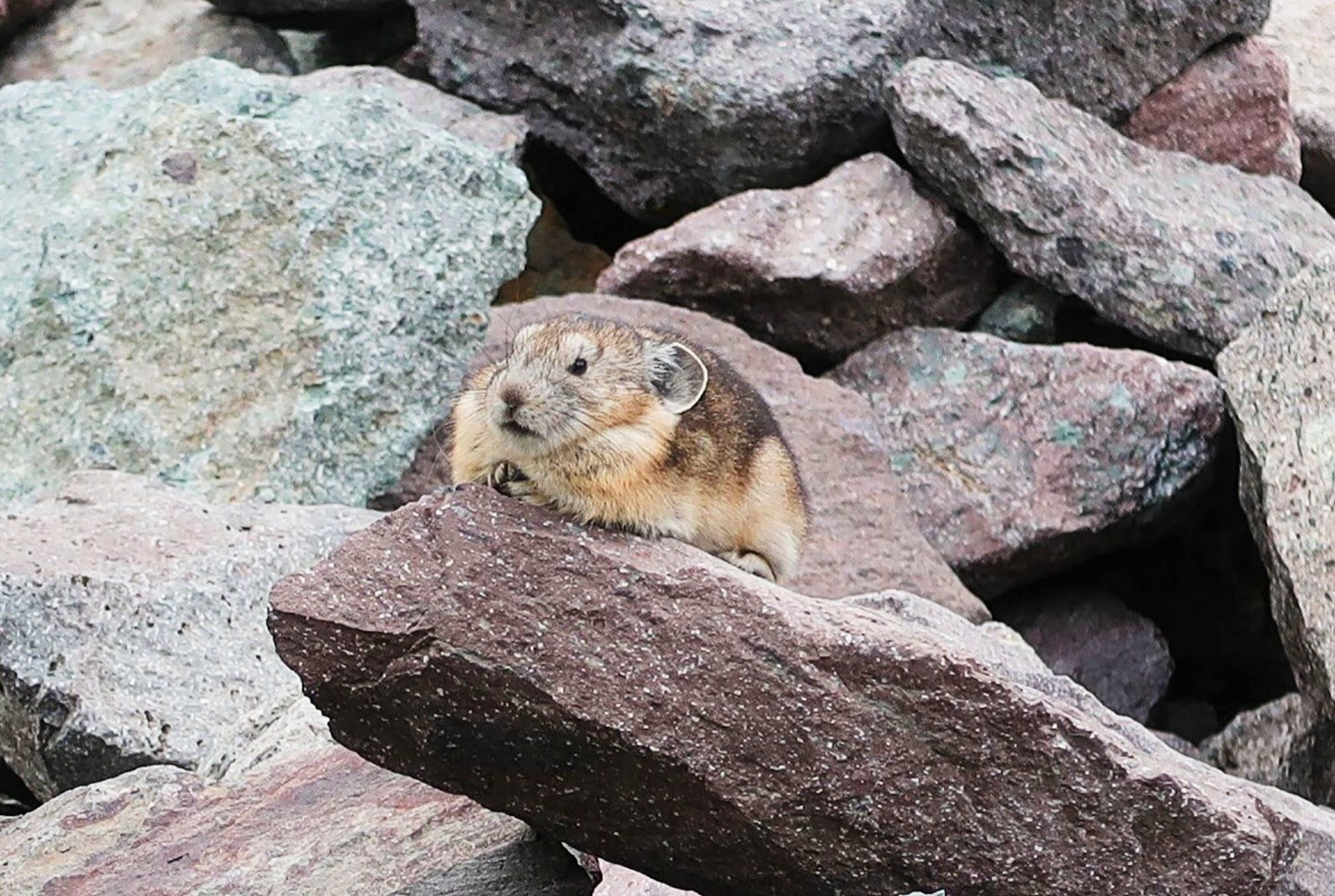Student Spotlight: Hope Gale-Hendry

[image caption]
Attending college right out of high school was not in Hope Gale-Hendry’s life plan.
Gale-Hendry grew up in Mapleton, Utah, a town of roughly 5,000 people located an hour south of Salt Lake City. She left for California the day after her 18th birthday, longing to experience life outside of her home state. After settling in California and working full-time at Starbucks, Gale-Hendry decided to attend Diablo Valley College to “grow, expand, and give back to the world.” She spent a semester abroad in Spain—an experience she credits with spurring her interest in ecology and conservation—and later transferred to UC Berkeley in Fall 2020.
Now a fourth-year Ecosystem Management and Forestry student, Gale-Hendry has served as president of the Cal Forestry Club and is currently conducting research on the American pika in Lassen National Forest. She considers her acceptance to Berkeley as a “pivotal” moment of her life.
This conversation has been edited for length and clarity.
I know you’re originally from Utah and also transferred from Diablo Valley College. Could you tell us about your path to California and Rausser College?
The day after my 18th birthday, I moved out to California. My parents were not in favor of it—they were super unhappy with me. It was a huge leap of faith to move out but I wanted to be free. I wanted to be away from the confines of where I grew up and my parents' rules. My dream was to be a traveling climber—what other climbers referred to as a "dirtbag." I wanted to just live out of my car and maybe be a climbing guide or something like that.

[image caption]
What made you change your mind about college?
I supported myself by working at Starbucks full time, but eventually I realized I wanted to do something more with my life. I wanted to grow and expand and give back to the world, so I decided to go to college. I didn't even know that Berkeley existed because growing up, we didn't do college applications at my high school; we didn't talk about going to college. So I just looked up the best community colleges, and Diablo Valley College (DVC) was the first one. Boy, did I get so lucky. DVC changed my life. I would not be where I am if it weren't for DVC.
Did your affinity for climbing inspire you to pursue environmental sciences, or did something else spur your interest in the field?
I went on a study abroad trip to Spain while at DVC, and during my trip, I took an environmental biology class—my first biology class—with Steve James. I had been at DVC for three semesters but hadn't declared a major yet. During that class, he talked about Aldo Leopold, who is one of the most admired ecologists of the 20th century. Leopold has an essay that talks about a hunting trip where he shot a wolf and watched a fierce green fire dying in her eyes.
When my professor shared that quote with me, he got really teary-eyed. And I was teary-eyed—I was crying. I realized, “Oh, this is what it's all about. This is what I want to study. I want to be an ecologist.” It opened my eyes to what had always been the truth for me, which is that I love the wilderness. I love animals. I love species that differ from my own.

[image caption]
What was the transfer process like for you? Was there anything that made Rausser College stand out?
It was time for college transfer applications while I was in Spain. Other students were applying and I hadn't even considered transferring—I hadn’t thought about it yet. Eventually, I decided to apply to some schools and see what the process is like. I applied to Davis, Berkeley, and a couple of other UCs, and I didn't get into a single one. Even though I didn't necessarily want to apply, the fact that I did made me think “Hey, you know what, I’m gonna do this for real.”
I kept going to DVC while I was working as a climbing instructor and coach for the kids’ climbing team, and doing an internship at a wildlife rehabilitation hospital. There was one period where I went 68 days in a row without having a single day off. While I was looking at different colleges to transfer to I saw the Berkeley forestry website. I saw the things that students were able to do and I was like, “That’s the one. That’s the program for me.”
Getting into Berkeley was probably one of the most pivotal moments in my entire life. I honestly want to cry thinking about it. It's hard to even speak to how profoundly it shifted my entire life trajectory.
You’re currently studying the American pika in Lassen National Forest. Did you come to Rausser College with that idea in mind?
When I was in community college, I took an ecology class where we had to read a scientific paper and summarize it. I decided to read one about pikas, a little furry lagomorph in the rabbit and hare family. I was infatuated with pikas in 2019, but when I got into Berkeley in 2020 I hadn’t really thought about pikas again.
Last summer, I was measuring forest data in Yosemite for professor Scott Stephens, a fire ecologist. There was this area in Yosemite where there are tunnels on the ground. I was really interested in these little tunnels and whether they had been formed by some critter. One night I was laying in my tent with my ear to my pillow—it was in an inflatable pillow so it amplified sound—and I heard this little scratchy sound. I lifted my head and it was gone. I couldn’t hear it anymore. When I put my head back down I realized it was the little moles underground that were digging their tunnels. And I was so excited—It was the most excited that I had been all summer. At that moment I realized, “Oh my god, it's animals for me—animals are what I want to study.”
I ended up quitting that job and decided to become a pika scientist instead.
Can you tell us a bit more about the pika research you are doing now?

[image caption]
I did a big literature review and reached out to professor Erica Bree Rosenblum, who has really inspired me while I’ve been at Berkeley. I also reached out to a USGS scientist who wrote the paper I initially read. He had this data set of” presence-absence” surveys of pikas in Lassen National Forest from 2012 to 2016. He offered to mentor me on the project and to teach me how to perform those analyses, so that's what I'm doing right now.
Pikas can be considered the canary in the coal mine for detecting a disrupted climate. They may very well go extinct during our lifetime because of our changing climate, right in front of our eyes.
We have 168 patches that have been surveyed for the presence or absence of pikas. We’re looking for evidence of pikas living on those patches in the past and are combining that with data on vegetation, precipitation, temperature, and general climate factors. We hope to build a model that can predict the presence, absence, or abundance of pikas.
Has it been difficult to balance your academics with work and life?
It really does feel impossible at times to get the experience that I'm looking for in college and also just survive. I supported myself by working full time and splitting rent with my partner until we broke up. After that, I couldn't afford to pay rent on my own, so I lived in my car in the climbing gym parking lot for some time. I ended up living with another partner until the same thing happened.
Last fall I was living out of my car when it was stolen with all my belongings in it. I didn't have anywhere to go so I reached out to the UC Berkeley Basic Needs Center. They helped put me in emergency housing until my car was retrieved.
Taking advantage of the resources offered at Berkeley—like our mental health resources, financial aid, and the Basic Needs Center—has been really important for me. But yeah, it's certainly been super hard. What's really getting me through it is envisioning my future self.
Speaking of that, what do you hope to do once you graduate from Rausser College?
I definitely want to go to grad school. I'm looking at various master's programs right now, including the rangeland and wildlife management Master's at Berkeley. I'm also looking at an evolutionary biology program at Columbia, and ecology programs at Oxford and the University of British Columbia, but ideally, I would do my Masters at Berkeley.
Do you know of a student or group in Rausser College involved in noteworthy research, community outreach, or extracurricular activities? Let us know by submitting a suggestion with this nomination form.
Bonus: finding hope in your ‘fellow earthlings’
[iframe caption]
Want to hear more? Gale-Hendry recently spoke to the Berkeley Voices podcast about her deep interconnectedness with all living things, and why she decided to study the American pika.
“We have a shared history on this planet,” she said. “That is the lesson that I have been able to use to foster my passion for conservation and foster this love and admiration that I have for my cousins on this planet. Not just humans, but moss and squirrels and horses and farm animals and lichen and every beautiful and unique species that has been on their own journey.”
